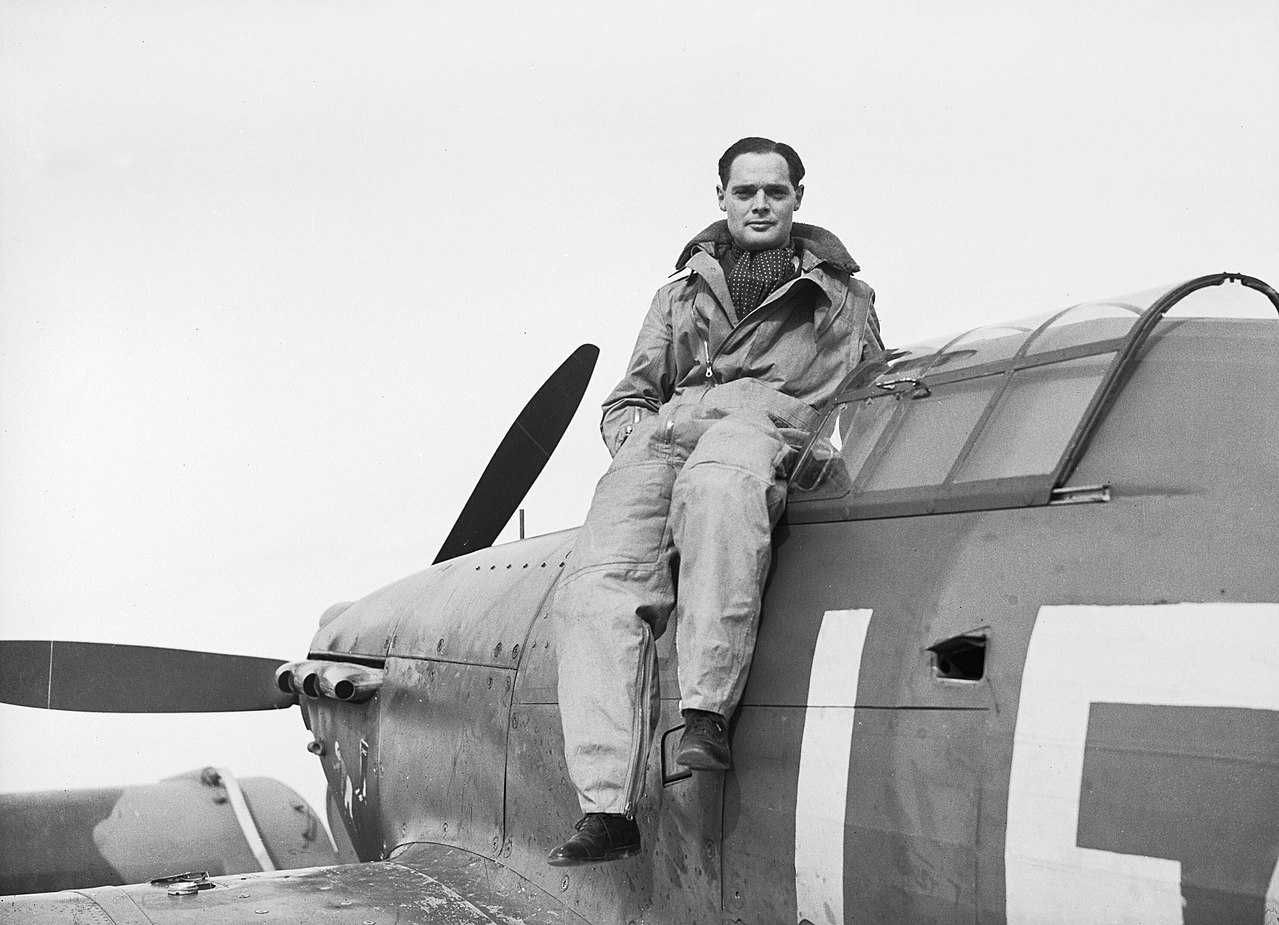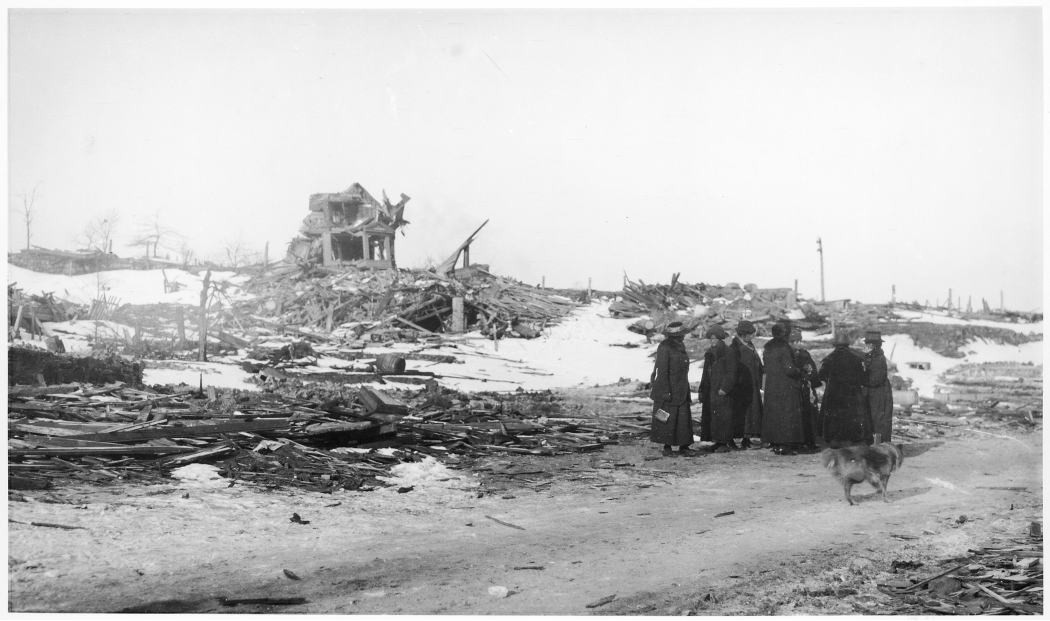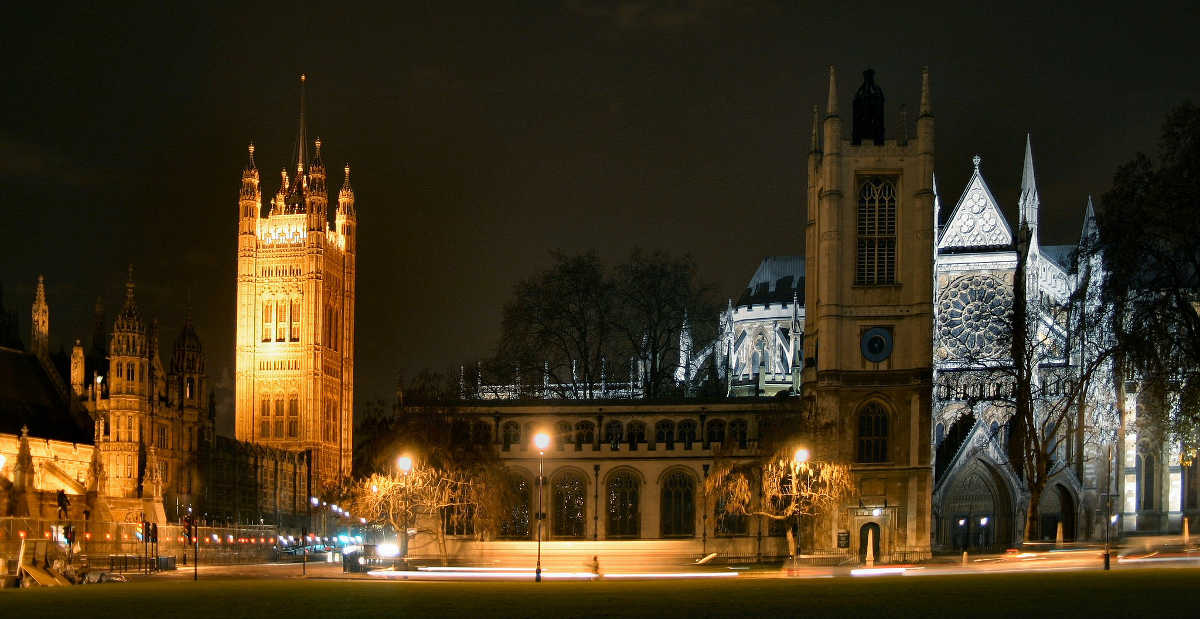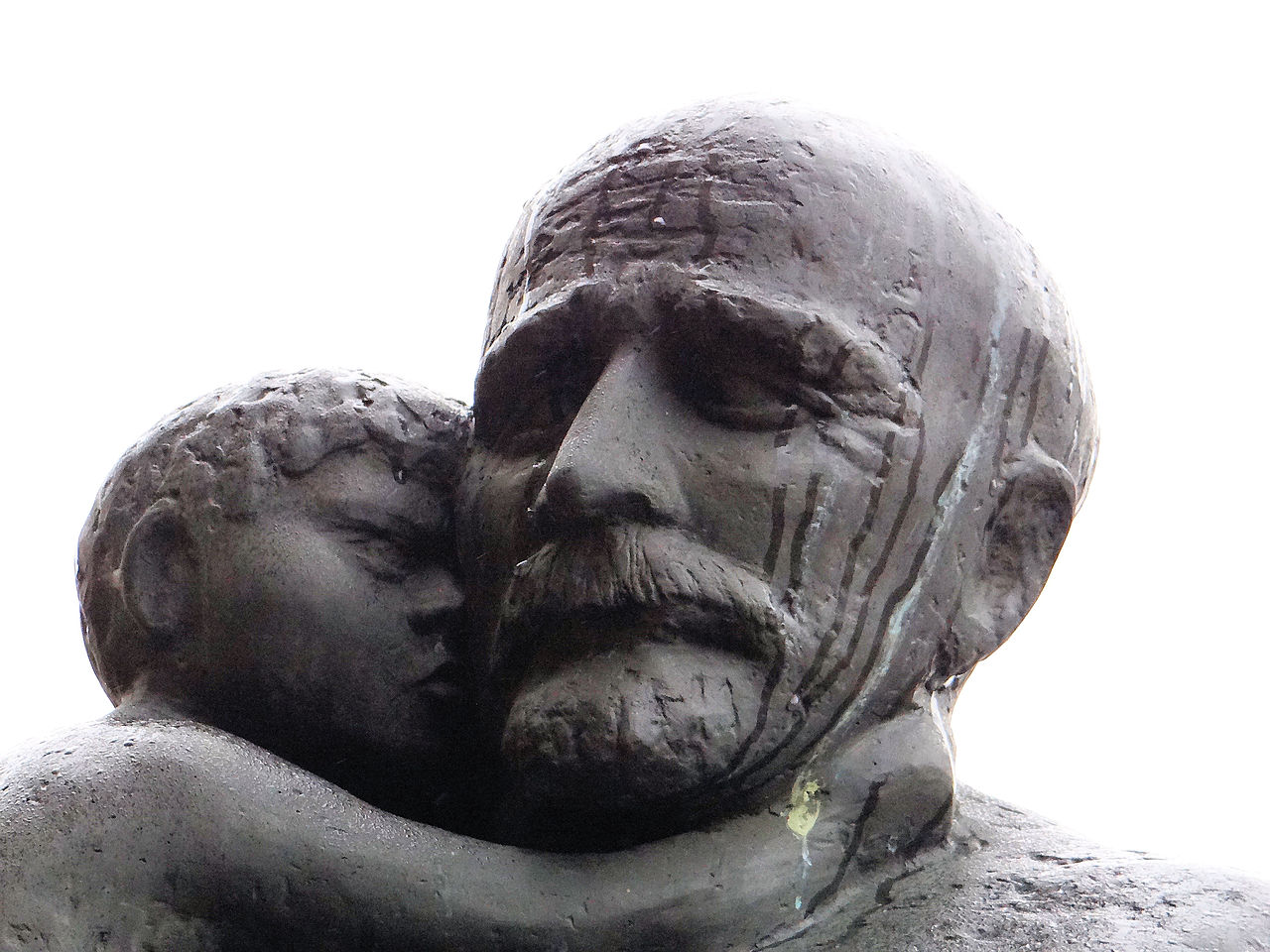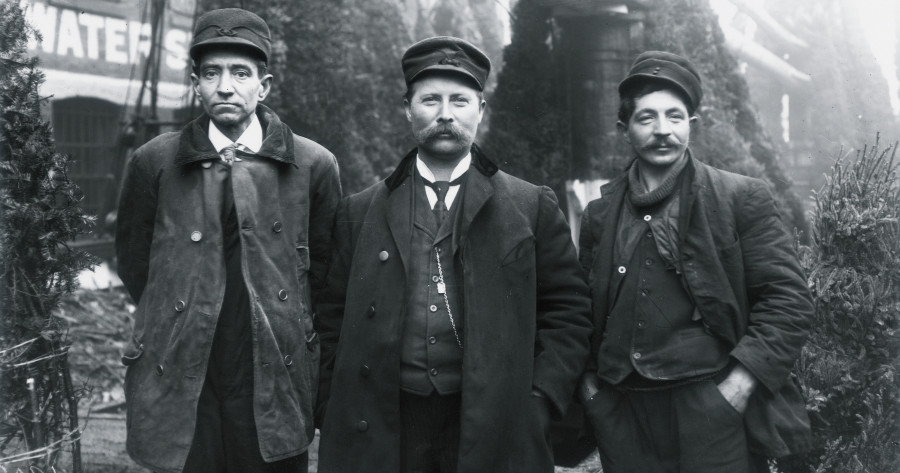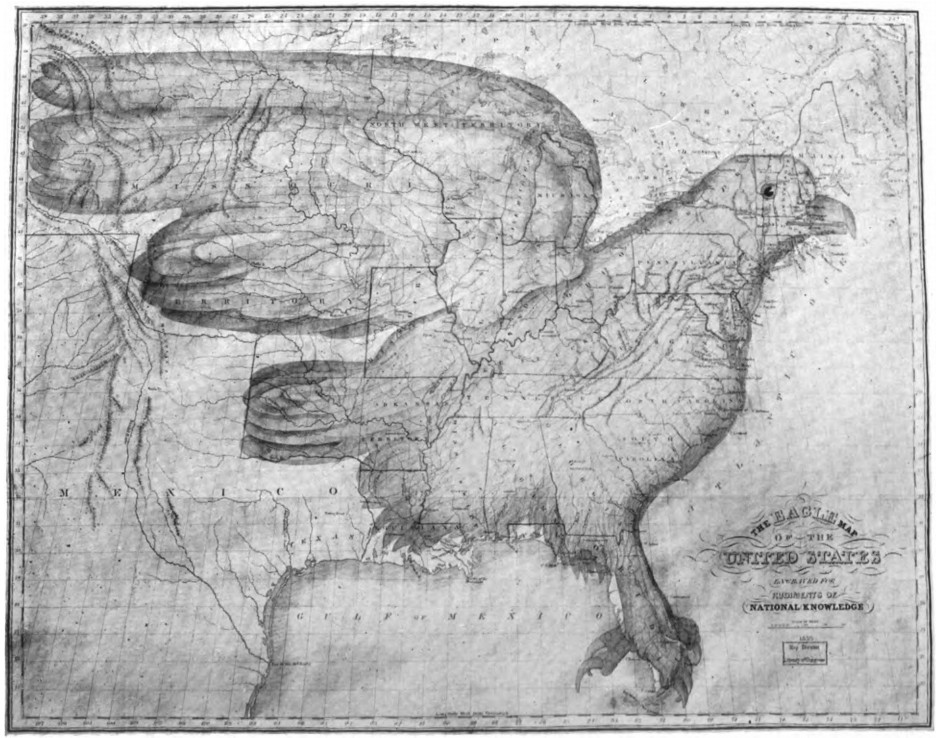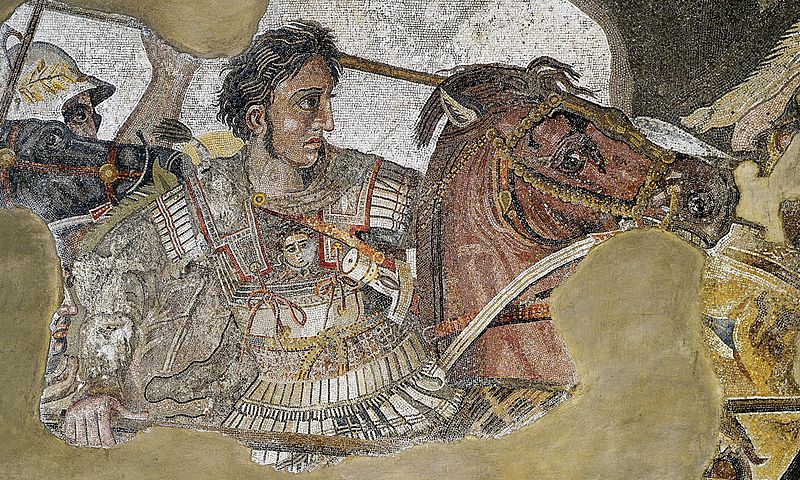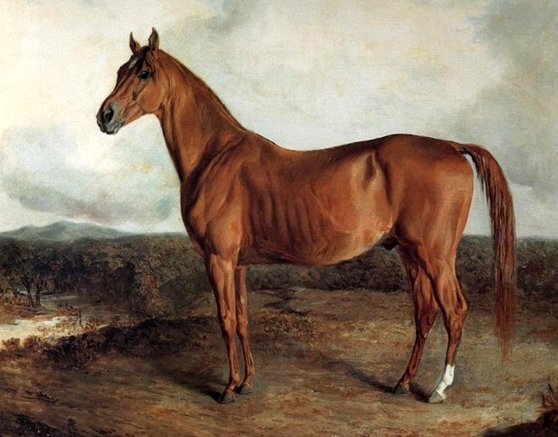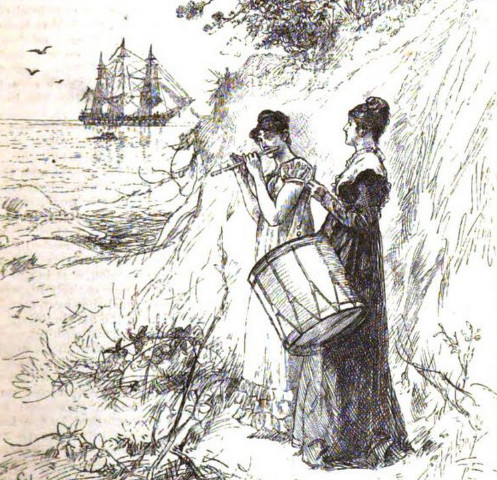
Doubtful but interesting: In June 1814 two British warships marauded Scituate Harbor in Massachusetts, burning and capturing American vessels. Militia member Simeon Bates fired cannon shots after them from his lighthouse on Cedar Point. When a ship returned in September, only Bates’ wife and daughters were at the lighthouse, so 21-year-old Rebecca grabbed 17-year-old Abigail, took up a fife and drum that the militia stored there, ran behind a range of cedars, and played “Yankee Doodle” to suggest that the militia was returning. The British withdrew.
The story is supported only by the two sisters’ recollection, and Rebecca identified the ship as La Hogue, which turns out not to have been near Scituate at the time. “But Rebecca might have simply misidentified the ship, and she and her sister swore the story was true, even signing affidavits to that effect,” writes Eric Jay Dolin in Brilliant Beacons. “Many locals, siding with the two intrepid sisters, believed it too.”
(“Along the South Shore,” Harper’s New Monthly Magazine 337:57 [June 1878], 1-14.)
